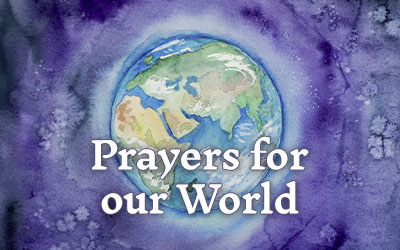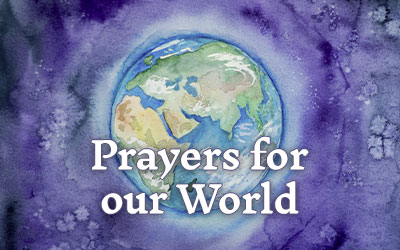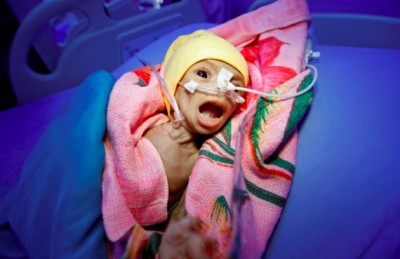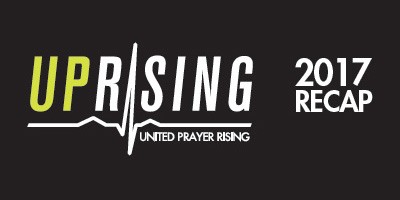- Kim Jong Out? Some see signs of collapse No shots fired at defector, U.S. preps 'infiltration,' economy on brink http://www.wnd.com/2017/12/kim-jong-out-some-see-signs-of-collapse/
- North Korean source of massive computer worm attack. TheWashington Postreports the Trump administrationidentified North Korea as the source of the WannaCry computer worm that affected 230,000 computers earlier this year. The administration called on “all responsible states” to counter North Korea’s ability to conduct cyberattacks and to implement all “relevant” UN sanctions. “The [WannaCry] attack was widespread and cost billions, and North Korea is directly responsible,” said a Trump administration official. “We do not make this allegation lightly. It is based on evidence. We are not alone with our findings, either.”[i] Note: Russia should share some of the blame because that nation facilitated North Korea’s enhanced access to the worldwide web.
- SECDEF claims N Korea’s ICBM not yet “capable threat.” Reutersreports U.S. SECDEF Jim Mattis saidthat even as an analysis continued on North Korea’s most recent missile test, he does not believe its ICBM is capable of threatening the U.S. homeland. “It has not yet shown to be a capable threat against us right now … we’re still doing the forensics analysis,” Mattis said.[ii]
Other dangerous areas of our world
- Chinese warplanes test neighbors’ air defenses. TheAssociated Pressreports Chinese warplanes on a long-range drill to the Sea of Japanconducted drills around rival Taiwan, an action that prompted South Korea to scramble fighter aircraft. A Chinese air force spokesman said its air force dispatched bombers, fighters and reconnaissance planes through the Tsushima Strait to the Sea of Japan to “test its ocean combat ability.” “This is a regular annual training arrangement of China’s air force that accords with the relevant international laws and practices and it isn’t aimed at any particular state, region and target,” the spokesman said in a statement.[iv] Note: Beijing is steadily increasing pressure throughout the Indo-Pacific region through its far reaching air incursions, its island-building campaign and its rapidly expanding naval presence. These upgrades and confrontations are not going without notice and are worrisome given President Xi’s promise at the 19thCongress to make China a global military power.
- Worst Obama legacy yet – trading America’s national security for an Iran nuclear legacy. Politicopublished a fascinating report about an ambitious U.S. task force targeting Iran’s terror proxy Hezbollah and was sidelined by the White House’s desire for a nuclear deal with Iran. This is very much a “deep state” story of intrigue and political manipulation by the Obama federal bureaucracy. Specifically, Project Cassandra was a $1 billion, 2008 Drug Enforcement Administration effort targeting Hezbollah’s drug and weapons trafficking, money laundering and other criminal activities. The interagency effort traced the criminal conspiracy to the innermost circle of Hezbollah and its state sponsors in Tehran. However, that effort was sidelined by Obama officials who threw insurmountable roadblocks in its way. Even though Hezbollah delivered multi-tons of cocaine into the U.S. and undermined American interests globally, then Obama CIA director John Brennan insisted upon helping Hezbollah to gain more influence in Lebanon. The end result of the Obama administration’s effort was to neuter Project Cassandra to curry favor with Tehran to embrace the 2015 nuclear agreement.[vi] Note: ThePoliticopiece is long, complex but the allegation is clear: the Obama administration sacrificed America’s security/welfare in exchange for the Iran nuclear deal – the former president’s foreign policy legacy.
- China-India enter troubled water dispute. STRATFOR reports “The latest dispute between India and China is as murky as the water it's over. In October, the South China Morning Post reported that China had revived plans to build a 1,000-kilometer (621-mile) tunnel to divert water to Xinjiang province from the Yarlung Tsangpo River in southern Tibet and was testing the technique on a separate tunnel project. China denied that any such plans were underway. But when the Sang River then appeared muddier than normal in recent weeks and displayed elevated levels of iron, it struck a nerve in India. A local leader running for office in Arunachal Pradesh speculated that Chinese construction was responsible for the pollution, but he failed to provide evidence to back up his assertion and both Indian and Chinese leaders denied that China was responsible for the muddy waters. On Dec. 4, Indian Union Minister Arjun Ram Meghwal said an earthquake that took place in mid-November could be responsible for changes to the river. Whether China is planning a diversion project or not and regardless of whether it is behind the most recent murky waters, the events have shown just how volatile transboundary rivers can be for the regional giants.”[vii]
Robert Maginnis
This email address is being protected from spambots. You need JavaScript enabled to view it.
9 killed, over 50 injured in church bombing in Pakistan
18 December 2017
On Sunday, 17 December, a suicide bomber targeted a Methodist Church in Quetta, Pakistan leaving nine dead and more than fifty injured.
According to reports, though two attackers targeted the Bethel Memorial
Methodist Church, only one managed to detonate his vest. The second attacker was killed by security forces. It is believed that more than 400 worshippers were
attending the worship service during the time of the attack. A group affiliated
to the Islamic State claimed responsibility for the incident.
“We condemn this inhuman attack in Quetta and call on the Pakistani government to take all steps necessary to provide adequate security to Christians during this Christmas season,” said Godfrey Yogarajah, the Deputy Secretary General of the World Evangelical Alliance. “We pray for God’s healing mercy upon
those injured in the attack and God’s presence to be with those grieving the
loss of loved ones,” he added.
Prayer points:
* Pray that those perpetrating violence against Christians in Pakistan would
experience a change of heart, repent, and turn to Jesus Christ.
* Pray for God’s healing upon those injured in the attack.
* Pray for God’s comfort upon families grieving the loss of loved ones.
* Pray that the Pakistani government would step up security measures for churches, ensuring the safety of Christians.
Terrorist training
Recently the world has watched in amazement as the new young Saudi Arabian prince has arrested, on corruption charges, many other princes and leaders. It is not fully clear why he has done this. Power would be one reason, but some say that he realizes that with the reduction of the need for oil from his country people are looking at the influence his country has had on radical Islam throughout the world. Its Wahhabi type of Islam has indoctrinated people around the world, funded radical mosques, and financed terrorist groups like al-Qaida. This has had a very negative effect on relationships with many countries.
Saudi Arabia and Iran have been the major financial backers of radical Islam in Pakistan. Until this funding is stopped, it is almost impossible to stop terrorist groups. President Musharraf was the last president to try and stop this. Madrassa schools are the training and recruiting grounds for terrorists. Musharraf was closing these down. As they were closed down, many of them moved to one of the most radical parts of the country. Hundreds of these schools sprang up. One block could have several schools on it. There were times when terrorist groups would come into these schools and take out as many as 10,000 young people to their camps for further training.
How do these schools work? Everyone wants education for their children. A worker came wanting to send their eldest boy to one of these schools. He was persuaded not to do it. They later thankfully came and shared how a neighbor had sent their son to the madrassa and when they went to visit him a few months later, they found he had been sent away to become a “mighty warrior.” They never saw him again.
PRAISE for HOPE- God’s intervention in an unexpected way.
PRAY the Prince of Saudi Arabia will stop funding for madrassas, and fanatical
training camps and mosques in Pakistan. That they will be closed down.
Demonstrations to overthrow the government. The situation had grown to where sit-ins and marches were in over 20 major cities. The major issue for these demonstrations was over the blasphemy law. This law is hated by most people in the country. Muslims use it not only against Christians but revengefully against fellow Muslims. The government has tried to rectify this issue.
The whole issue had started when one very fanatical group, known for their stand
on the blasphemy law, gathered other groups to stand against the change that had been made in this law. The military was finally called in and stopped the demonstrations. They are being proclaimed as the heroes who saved the country. But it was with an agreement that a council of 14 people, made up of several well-known “pirs” and fanatics, will decide the fate of over a dozen political members, the ones who had tried to change this law.
PRAISE that the demonstrations have been stopped temporarily.
PRAY for Peace
for this council’s decision
for the military’s place in all of this.
PRAYER TEAM TO PAKISTAN For their preparations, safety, papers to be granted and ministry.
Breakthrough praying
There have been breakthroughs in the Muslim world with moves of God and church planting movements in nearby countries, but things have been slow to move in Pakistan in some regards.
We are asking people to incorporate prayers for Pakistan into their prayers. We want 2018 to be a year of prayer for Pakistan. Would you kindly pray for :
- a fresh move of God in Pakistan, reviving the church and birthing a church planting movement among the majority
- a neutralizing of the powers and principalities that hinder the advance of the gospel and the witness of the church
- that God would continue to call the leaders needed to launch a media ministry partnership, especially that he would call and identify the key Pakistani leaders for our International Council and Executive Board
- wisdom and grace for our executive leaders as the formulate and begin to execute business plans
- a continued strong momentum as representatives of the global church partner with representatives of the Pakistani church to bring the gospel there with power
- great unity among us as we move forward by faith, clearly sensing the Lord’s leading with each step.
Sixty-day-old Nadia Ahmad Sabri, who suffers from severe malnutrition, lies in a bed at a malnutrition treatment center in Hodeidah, Yemen, on Wednesday. (Abduljabbar Zeyad/Reuters)
David Miliband, president and chief executive of the International Rescue Committee and former British foreign secretary, is the author of “Rescue: Refugees and the Political Crisis of Our Time.”
“This week, the 1,000th day of Yemen’s civil war is marked by disease and starvation rather than peace talks and humanitarian aid. This truly is the new world disorder: an increasingly divided Middle East, western diplomacy in retreat, international law undermined. And the options are only getting worse.
There are 22.2 million Yemenis currently in need of humanitarian assistance. Of these, 8.4 million are at serious risk of starvation. The number of cholera cases has just passed 1 million – an astonishing figure. In the standoff between Saudi Arabia (backed by the United States) and Iran, civilians are paying a horrific price. Yemen suffered more airstrikes in the first half of this year than in the whole of 2016. According to the United Nations, airstrikes killed 136 Yemeni civilians in an 11-day span earlier this month. Peace talks are nowhere in sight.”
The latest news is that 68 civilians were just killed in what has been called “an absurd and futile war”. Let’s make a concerted effort in united prayer for God’s peace to come over this terribly troubled land and that these long-suffering people, especially the children, will receive relief and medical assistance. Pray also for peace talks to be held that will result in the ending of the conflict which is the basis for all the horrors that are happening there.
Australia Christian prayer leaders invite their brothers and sisters in Christ, prayer groups, prayer networks and churches to join with them all over the world to pray at sunrise on New Year's Day 2018 at a public location such as a hill, lookout or landmark in your city or town. Already we have registrations from USA, South Africa, Cameroon, India, North Korea, Thailand, Germany, Czech Republic, UK, Switzerland, Fiji, Solomon Islands, Vanuatu, New Zealand, and Australia.
See 2018 short promo video: www.youtube.com/watch?feature=youtu.be&v=LSTHRAixKOQ
Warwick Marsh, coordinator for Australia’s National Day of Prayer & Fasting said, “David said in Psalm 108:2, “I will wake the dawn with my song.” So, during this time of prayer we want to focus on giving great praise to God. We also want to pray for revival and transformation, that God will bring healing to our land as it says in 2 Chronicles 7:14. Let us all pray for a great harvest of souls for the Lord Jesus Christ.”
Marsh continued, “In declaring Jesus Christ as Lord at this worldwide Sunrise Prayer Relay we are circling the globe with prayer, praise and worship and surrendering our lives to Jesus Christ for the glory of God. Psalms 113:3 says, “From the rising of the sun to the place where it sets, the name of the Lord is to be praised.” Use the prayer resources on the website and social media and register your location at: www.sunriseprayerrelay.org Our prayer is that with your help, this worldwide Prayer and Praise Relay will go viral.”
Pat Steele, a prayer and worship leader in Wollongong Australia, said, “We encourage you to pray the Lord's Prayer together aloud as the sun rises and make a declaration that Jesus Christ is Lord of your life, your family, your region and your nation. At your location we encourage you to include praise and worship, prayers, and scripture readings. We suggest 30 minutes, but you can pray for longer. You could even take communion, shine a torch, or light a candle. What you do for your sunrise celebration is up to you.”
Share photos and videos from your location on social media.
Use the hashtag: #sunriseprayerrelay
Website: www.sunriseprayerelay.org
Facebook: www.facebook.com/sunriseprayerrelay
Instagram: www.instagram.com/sunriseprayerrelay
Longer Video: www.youtube.com/watch?v=FybiSXxbl6Q
Contact: Warwick Marsh 61 418 225212 or Pat Steele 61 433 006934
600+ mission people gathered at Saddleback Church in Lake Forest, California, December 5-7, for the Finishing the Task event. Our purpose was to focus on the remaining unengaged unreached people groups, whole ethnolinguistic and cultural groups that still do not have exposure to Christ’s Good News through a resident team of indigenous Christians or missionaries. A list of 1347 such people groups are carefully catalogued and monitored on the FTT website www.finishingthetask.com for churches, mission agencies, prayer groups and individuals who would like to adopt them for prayer and mission engagement.
Encouragingly, it was the first time that a special prayer track was part of the event, and as a result, a new strategic group was formed to consider how best to mobilize ongoing, specific intercession for each UPG until they are reached and Jesus word in Matthew 24:14 is accomplished-- that all peoples will have the gospel proclaimed as a witness before the end comes.
What amazing and exciting days we are living in, even potentially seeing the Great Commission fulfilled before our eyes in the coming years! Please do join in this still enormous effort, asking those churches, organizations and prayer groups you are in touch with to adopt at least one of these spiritually needy groups in prayer. It is the crucial and initial way to breakthrough and the Lord will call and raise up laborers as He said he would if we pray. “The harvest truly is great, but the laborers are few; therefore pray the Lord of the harvest to send out laborers into His harvest.” (Luke 10:2)
During the event, we premiered the new video on the integration of prayer and mission. Attached are the final versions that you are free to use and share. The earlier version shared with you last month needed some further refinement so please use these links:
Spirit of the Moravians 9-min
Spirit of the Moravians 3-min
Would you please pray with us that this video will go “viral” and be spread around the world so that millions of believers will see and find their role in praying for the unreached people groups, with many also going to share Jesus Christ with them?
Pray too for the effective integration of prayer and mission and that the prayer and mission movements will meld together increasingly to carry out His Great Commission.
Specifically pray that the Finishing the Task initiative will accelerate and that all the 1347 still unengaged unreached groups will have their own international ministry networks connecting and focusing efforts in sensitive, Spirit-empowered and guided ways that they may be reached ASAP.
Thanks for your partnership in this most important of assignments—to make Jesus known to the ends of the earth and every people group while there is still time and freedom to do so.
John Robb
IPC Chairman



The UPRising PH has come at a very crucial time for the nation. When the Lord led the National Dream Team to do the gathering in Davao City, Mindanao, little did they know that the Marawi War would take place and that the country’s President would put Mindanao under Martial Law for the duration of the armed conflict. While this news deterred some would-be goers, it also sparked an intercessory fire in the young people. Because of security reasons an outdoor prayer gathering was not allowed to be held, but the Solemn Assembly in Mindanao still became a defining moment.
One of the important highlights during the convergence was the Rapid Fire Prayer Time. As the 17 regions of the Philippines were called out one-by-one, representatives from the respective regions rose to their feet, and the entire gymnasium thundered with prayers from everyone else. During those moments, the Philippines was not an archipelago; it was ONE NATION. Regionalism, which had long divided its people, was drowned in shouts of affirmations and prophetic declarations. When faced with the threat of losing their kababayans (countrymen) from the southern part of the country, the nation was confronted with their deep history of indifference and offense. Nevertheless, the Lord broke down barriers, and is continuing to restore love and build relationships between the generations and the regions.
One of the greatest blessings the youth in South Africa are thankful for is how the UPRising SA has brought the youth in their community to a higher level of unity, and that it has shown them the power of coming together in unity to pray, encourage the Body, and share the Word of God.
Also, because of the different issues the youth in South Africa are faced with, UPRising SA has raised an awareness in the community that there is hope found in Jesus Christ. During the conference, they witnessed drug addicts receive salvation and ex-gang members repent and accept Jesus as Lord and Savior. It was a sight to behold! For even just for one person coming to know the love of Jesus, all the sacrifices and hard work put into the preparations were all worth it!








Online
www.unitedprayerrising.com/donate
Bank Transfer
Bank: Wells Fargo
Account Name:
JESUS REVOLUTION NOW
Account Number: 2765314063
Bank Routing Number: 111900659
Looking forward to 2018
21 Dec 2017In 2017 we have witnessed miracles and seen suffering. But as we look ahead to 2018, we remember and proclaim that God is sovereign over every corner of the globe! He alone is the hope of 2018 - the Hope of the Nations. Though some situations may seem hopeless, we recognise and rejoice that He reigns ‘far above all rule and authority, power and dominion, and every title’ and that ‘all things are under His feet’ (Ephesians 1:21,22). Nothing is impossible for Him. ‘The LORD has established His throne in heaven, and His kingdom rules over all’ (Psalm 103:19). Nothing has or ever will usurp His authority and power. He reigns, and He rules over China and Europe, North Korea and Syria, Boko Haram, and IS. He rules over polio, cancer, and hunger. He rules over corporations, celebrities, and sports. He even rules over galaxies, stars, and planets, ‘and calls them each by name’ (Ps. 147:5).
BBC New Year ‘religious resolution’
21 Dec 2017A BBC review published on 20 December found religious people ‘poorly presented or satirised’ by the corporation, and suggests programming that ‘better reflects the UK’. BBC proposes to include religious themes in popular dramas and soaps on TV and radio, make more documentaries covering religious and ethical issues, and expand its religious affairs team. The ‘Thought for the Day’ slot on Radio 4 will be more closely linked to news items with women and young people. Figures from a wider range of religions will be invited to contribute. Pray that Tony Hall, the BBC’s director general, will remember its religion home page statement: ‘Christianity is the largest religion in the world with over two billion followers. 42 million people in Britain today describe themselves as Christian, and six million are actively practising.’







